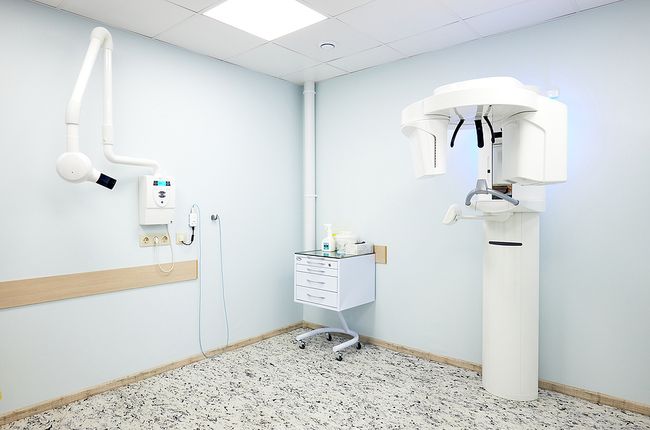At Uptown Smiles in Oklahoma City, we understand that undergoing a root canal can feel like a major investment—both in time and in comfort. It’s common to wonder: “If the root canal fixes the inside of the tooth, do I really have to spend more on a crown afterward?” The answer depends on your individual situation— and we’re here to explain why crowns are recommended in many cases.
Understanding the Anatomy: Why Root‑Canaled Teeth Become Fragile
Your tooth is a marvel of natural architecture:
- Outer enamel – the super‑hard protective shield
- Inner dentin – the more flexible, supportive structure
- Pulp chamber and root canals – where nerves and blood vessels once lived
A root canal treatment involves removing infected or inflamed pulp from inside the tooth. While this restores health and eliminates pain, it also means:
- Loss of blood supply to the tooth
- Dehydration of dentin
- Weakened structural integrity
In essence, the root-canaled tooth becomes like a hollow shell—functionally restored, but significantly more brittle.
Why a Crown Is More Than Just Cosmetic
Crowns are often perceived as cosmetic—but their purpose goes far deeper:
- Fracture Prevention
A tooth that has undergone a root canal is prone to vertical root fractures and cusp fractures. The chewing forces—especially in the back teeth—exert significant stress. A crown distributes pressure evenly across the entire tooth, helping to prevent cracks that could lead to tooth loss.
- Restored Chewing Function
Root canal-treated teeth often require a large filling to fill the space where decay or damage was removed. These extensive fillings alone can tolerate chewing—but only up to a point. Crowns are designed to handle heavy biting and restore full functionality, allowing you to chew confidently without fear.
- Long-term Reinforcement
Dental crowns act as a reinforcing shell. Think of them like a helmet that shields your tooth from external forces. Without it, your tooth becomes vulnerable again over time and could fail unexpectedly.
- Preventing Reinfection
While root canals are highly successful at eliminating infection, the protective seal can still degrade over time. A well-fitted crown acts as a second barrier, reducing the risk of new bacteria entering through cracks or defective margins.
When Didn’t You Need a Crown?
Not every root canal-treated tooth must have a crown. Some situations where a crown may be optional:
- Front teeth (incisors/canines) – experience less biting pressure.
- Very small cavities – post-treatment restoration may be minor.
- Teeth with robust remaining structure – only a minimal amount of tooth was removed.
Even so, many dentists—including our team at Uptown Smiles—still recommend crowns for long-term protection, especially in patients who grind their teeth or have a high bite force. Contact us to learn more.
Options and Material Choices for Crowns
If you decide to get a crown at Uptown Smiles, you’ll choose from three primary types:
Porcelain-Fused-to-Metal (PFM)
- Pros: Excellent strength and durability, good aesthetics
- Cons: May show a dark line at the gumline over time
All-Ceramic (e.g., Zirconia, Lithium Disilicate)
- Pros: Superior aesthetics and biocompatibility
- Cons: Higher cost; zirconia is opaque and may need layering for a natural look
Gold Alloys
- Pros: Excellent fit, minimal wear to opposing teeth, long-lasting
- Cons: Not tooth-colored—typically used on molars
At your consultation, our team helps you consider:
- Location of tooth (front vs. back)
- Bite force and habits (like grinding)
- Aesthetic preferences
- Budget
From there, we guide you toward the ideal crown material.
The Process at Uptown Smiles: What to Expect
Root Canal Visit
- We ensure complete cleaning, shaping, and filling of the canals.
- A temporary filling may be placed.
Pre‑Crown Assessment
- We check the remaining structure and decide whether a post and core is needed to reinforce the tooth.
Preparing the Tooth
- We shape the tooth to allow space for the crown. An impression or digital scan is taken for precise crown fabrication.
Temporary Crown Placement
- A form-fitting temporary crown protects the tooth while the permanent crown is being made.
Fitting the Permanent Crown
- At your follow-up visit, we remove the temporary crown and assess the new crown for fit, bite, and aesthetics.
- Once perfect, we cement it in place for long-term protection.
Potential Drawbacks of Skipping a Crown
- Catastrophic fractures: Weak teeth are prone to splitting—sometimes below the gum line, leading to extraction.
- Multiple re‑treatments: Fillings may fail, requiring retreatment or more invasive procedures.
- Loss of function: Weaker teeth may affect chewing and alter bite dynamics over time.
When We Might Consider a Filling Instead
At Uptown Smiles, we practice personalized dentistry. In select cases—like a heavily intact front tooth—we may recommend a front-tooth filling with careful bonding. Still, we clearly communicate that no restoration can fully match the protective benefits of a crown.
Lifespan and Cost: Worth Every Penny
- Crowns reliably last 10 to 15+ years, sometimes decades, with proper care.
- Root canal-treated teeth without crowns have significantly shorter survival rates.
- Cost breakdown includes impression, lab fees, and crown material—worth it for long-term oral health.
Caring for Your Crown Long-Term
- Brush twice daily with a non-abrasive toothpaste
- Floss daily, especially at the crown margin
- Avoid biting on ice or using teeth to open packaging
- Wear a night guard, especially if you grind
- Regular dental check-ups every six months
Conclusion
So, do you really need a crown after a root canal? The short answer: most likely, yes, especially for molars and premolars under heavy biting stress. Crowns protect the tooth from fracture, restore chewing ability, reduce the risk of reinfection, and offer cost-effective long‑term results. At Uptown Smiles in Oklahoma City, our goal is to help you make the best decision—balanced between health, function, aesthetics, and cost.
Your Next Step: Schedule a Complimentary Consultation
If you’ve recently had a root canal—or are considering one—give us a call today. We’ll guide you through whether a crown is the best next step, explore your options, and ensure you leave with a healthy, confident smile.
More Blog Posts
Office Hours
MON9:00 am - 6:00 pm
TUE7:00 am - 7:00 pm
WED8:00 am - 4:00 pm
THU11:00 am - 7:00 pm
FRI - SUNClosed





























